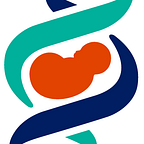CBD Use and Your Pregnancy: Friend or Foe?
From anti-anxiety gummies to infused “wellness water,” cannabidiol (CBD) popularity has skyrocketed in the personal care, wellness, and food industries. CBD is one of the main cannabinoids found in cannabis plants such as marijuana and hemp. Starting in the late 1990s, paradigm shifts in public viewpoints on cannabis drove the gradual legalization of marijuana for medical use and spurred subsequent interest in the potential for cannabis-derived therapeutics. In my wellness-orientated home state of California, CBD products are ubiquitous in personal care aisle and health stores. Product users often tout CBD as a “wonder supplement” for a variety of ailments — including pregnancy discomforts.
Positive anecdotes are on the rise in personal blogs, mainstream publications, and product review pages where users claim reduced anxiety, improved sleep, and eased labor pain. While not all of CBD’s purported health claims have been substantiated, some research suggests that CBD may effectively suppress two common pregnancy symptoms: nausea and vomiting. Naturally, growing numbers of pregnant women have tried or considered trying CBD products to relieve pregnancy symptoms. A recent survey found that 20% of women would consider using any form of CBD during pregnancy and 29% of women believed topical CBD was safe. However, the soaring popularity of CBD products is alarming. We currently lack clear and sufficient information regarding the risks posed, if any, by CBD use during pregnancy.
What is CBD and where is it found?
Cannabis is characterized by a unique class of chemicals known as cannabinoids. CBD is the second-most prevalent cannabinoid found in cannabis after the psychoactive THC (delta-9-tetrahydrocannabinol). While CBD is often associated with marijuana, it is usually extracted from low-THC hemp cannabis. CBD is featured in a myriad of products including tinctures, “supplement” capsules and gummies, concentrates, topicals (e.g., lotions, salves, lip balms, cosmetics), sprays, vape products, and food stuffs (e.g., soda, candy, water).
With the exception of Epidiolex, a prescription drug to treat rare severe seizure disorders in children, CBD is not approved for use as a drug product by the U.S. Food and Drug Administration (FDA). Labels on wellness products, however, may be misleading with regard to promised benefits to consumers. In November 2019, the FDA sent 15 companies warning letters for selling CBD-containing products in violation of the Federal Food, Drug, and Cosmetic Act (FD&C Act). While an early review by the World Health Organization (WHO) in 2018 determined both oral and topical CBD oil use as generally safe under certain circumstances, the FDA has also expressed concerns about the lack of data supporting the general safety of broader CBD use in human and animal food products.
What do we know about CBD use during pregnancy?
Previous safety studies, focused extensively on cannabis use during pregnancy, found that smoking cannabis during pregnancy is linked to lower birth weight, which may cause serious health problems for some babies. Comprehensive safety data and research on CBD specifically is limited, though early findings suggest CBD as a potential hazard to healthy pregnancies.
Early clinical investigations indicate that general CBD use may pose a risk of liver damage or adverse drug interactions in users. That latter is particularly concerning for women who receive anesthesia during labor. In animals, CBD was associated with reproductive toxicity in male offspring of animals exposed during pregnancy. Past BDRP President Dr. Lewis Holmes is currently leading work studying the impact of the CBD-based pharmaceutical Epidiolex on pregnancy outcomes.
Personal care or edible CBD products can also be contaminated with pesticides, heavy metals, or toxic mold or have inaccurate CBD content. There are no current requirements to verify CBD purity in products, which leaves the consumer to trust that the manufacturer has done their due diligence in producing a truthful and high-quality product.
The relationship between cannabis and CBD use and early childhood development outcomes remains unclear. Due to inconsistencies in CBD product manufacture and knowledge gaps surrounding CBD safety, the FDA generally advises against use during pregnancy.
Is CBD federally or locally regulated?
The last 20 years saw a significant paradigm shift regarding legal and public viewpoints on general cannabis use as well as the use of cannabis-derived products. Between the late 1990s and 2010s, cannabis use became more mainstream and publicly viewed as relatively harmless. Though marijuana cannabis remains on the Drug Enforcement Administration (DEA) Controlled Substances List, its non-psychoactive cousin, hemp — a legal CBD source, was removed in 2018 with The Agriculture Improvement Act.
Summary
While there is some promising evidence regarding medical CBD applications (the first prescription pharmaceutical containing CBD (Epidiolex) was approved by FDA in 2018), more studies are necessary to substantiate purported CBD health claims. Early research provides evidence that CBD use during pregnancy may present more harm than help for maintaining healthy pregnancies, though more research is required to understand the full scope of risk. Until the knowledge gap is closed, the best way to minimize risk is for patients to consult with their medical health provider.
About the Author
Lauren Walker is a Postdoctoral Fellow studying developmental toxicology at the Rutgers University.
More about the Society for Birth Defects Research and Prevention (BDRP)
To understand and prevent birth defects and disorders of developmental and reproductive origin, BDRP promotes multi-disciplinary research and exchange of ideas; communicates information to health professionals, decision-makers, and the public; and provides education and training.
Scientists interested in or already involved in research related to topics mentioned in this blog are encouraged to join BDRP. BDRP is the premier source for cutting-edge research and authoritative information related to birth defects and developmentally mediated disorders. Our members include those specializing in cell and molecular biology, developmental biology and toxicology, reproduction and endocrinology, epidemiology, nutritional biochemistry, and genetics, as well as the clinical disciplines of prenatal medicine, pediatrics, obstetrics, neonatology, medical genetics, and teratogen risk counseling. In addition, BDRP publishes the scientific journal, Birth Defects Research. Learn more at http://www.birthdefectsresearch.org. Find BDRP on LinkedIn, Facebook, Twitter and YouTube.
